Our concept
Jump to:
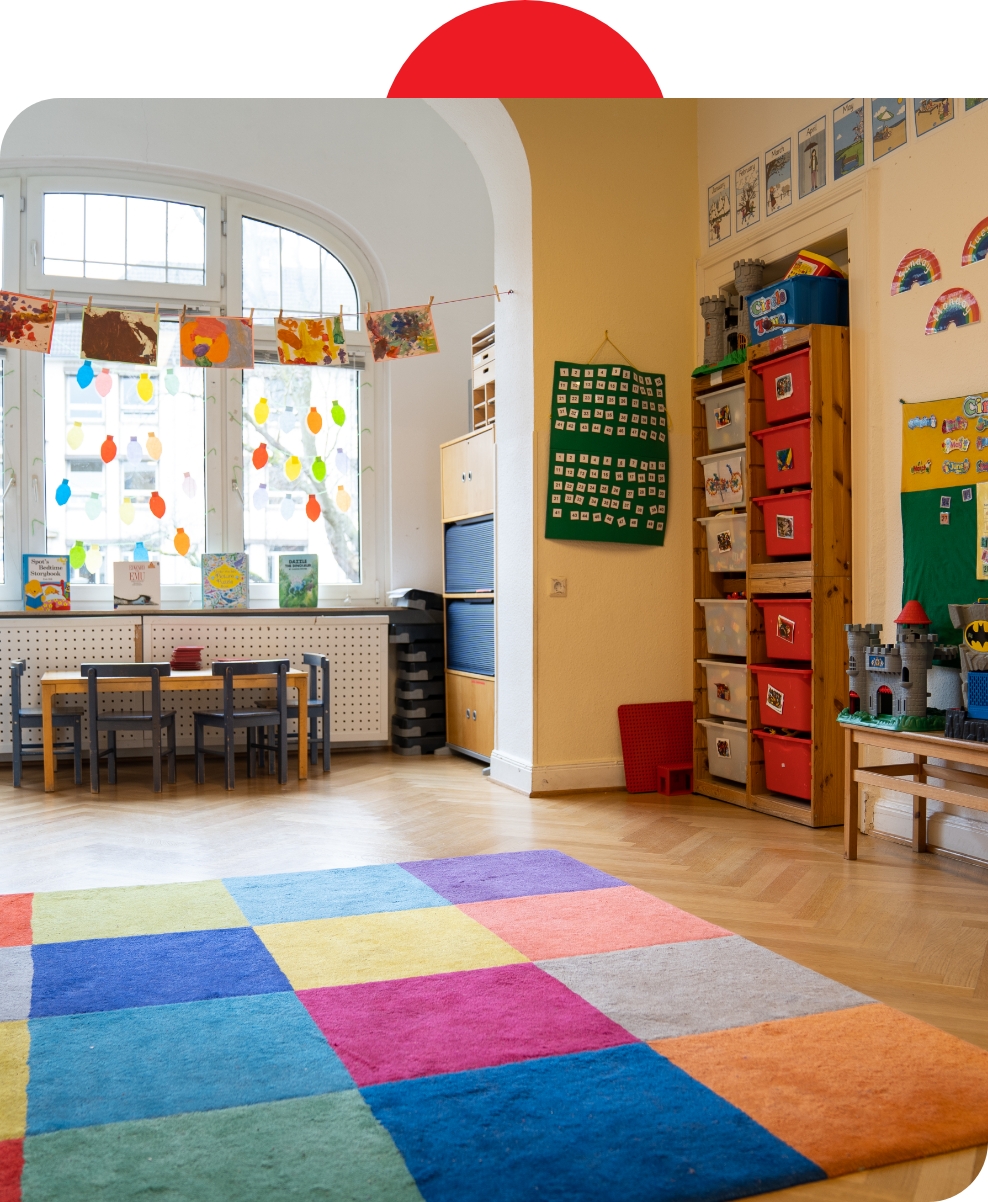
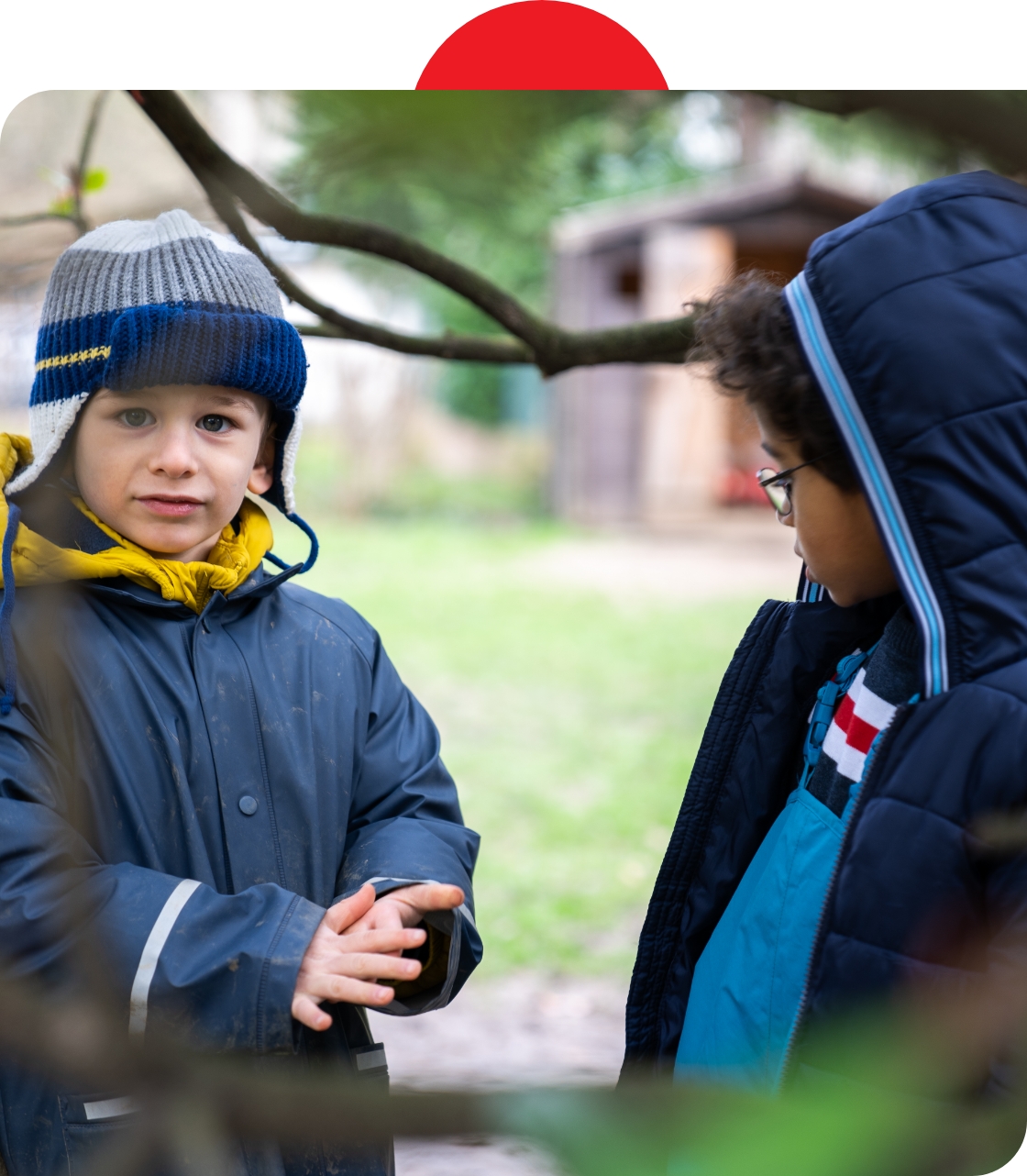
Our Philosophy and Conception
Our concept is based on the three pillars of integration & inclusion, diversity and Montessori education.
All children are welcome here. We want to design our daycare in such a way that every child -with or without physical or cognitive impairment- feels comfortable with us.
All of our qualified native pre-school teachers contribute to making inclusion come alive at this place.
Inclusion means that every person naturally belongs – no matter what they look like, what language they speak, or whether they have a disability or impairment. We are open to the needs of every child.
Together, we want to create a positive attitude towards inclusion. In doing so, we implement the UN Convention on the Rights of Persons with Disabilities in our facility, which calls for children to participate equally in society.
INCLUSION IS A HUMAN RIGHT – and our facility stands up for it!
Our educational curriculum is based on the requirements of the English curriculum for early childhood education (Early Years Foundation Stages). This educational syllabus includes project work in the 6 learning areas of SOCIAL & EMOTIONAL LEARNING, LANGUAGE & LITERACY, MATHEMATICAL DEVELOPMENT, CREATIVE DEVELOPMENT, KNOWLEDGE ABOUT THE WORLD and PHYSICAL DEVELOPEMT.
Free play and creativity
The Pre-School day begins at 07:30 and includes a balanced selection of stimulating activities inside and outside our premises. The morning begins with free play according to the principles of Montessori education, where the children are free to choose their own games and playmates. These can be games and activities at the table, such as puzzles, crafts, painting or card and board games. Meanwhile, the educators can make valuable observations, especially regarding the child’s social skills, conflict resolution skills, cooperative behavior, and group skills. (formative learning diagnosis)
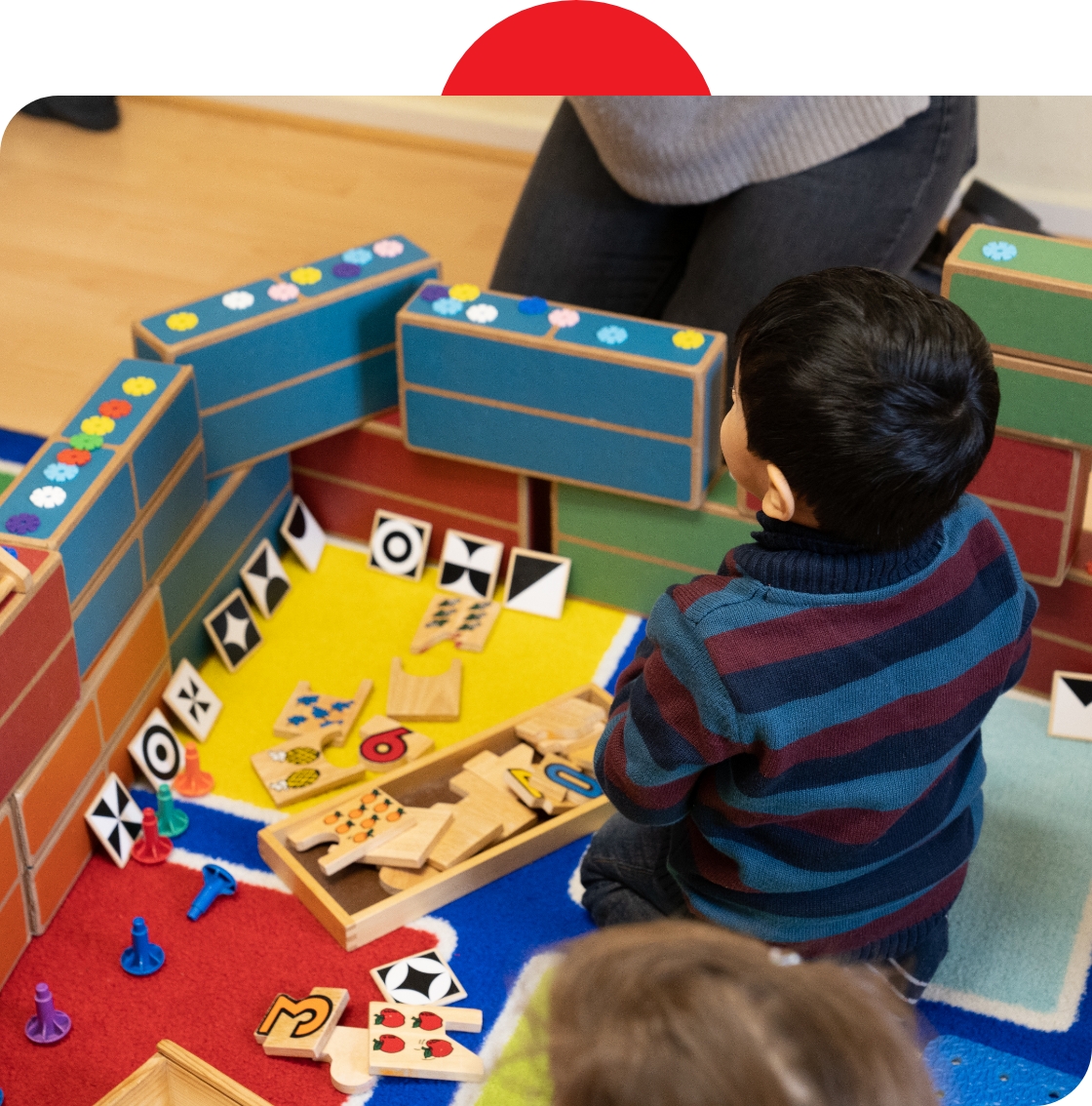
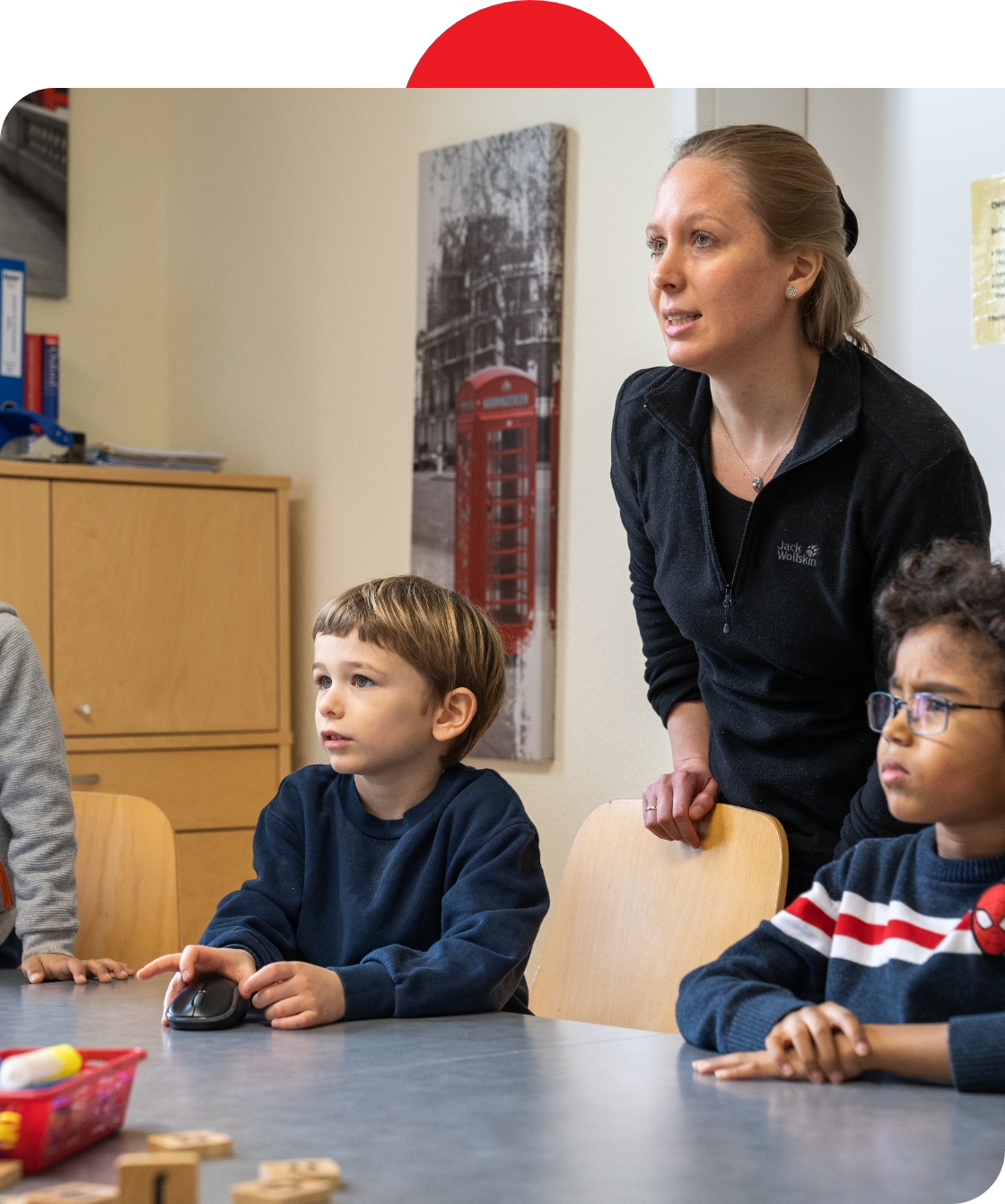
Circle Time and learning activities
After the morning “Tidy-up”, the common tidying up, introduced by our “Tidy-Up Song”, circle time is out morning get-together, during which the individual groups talk about the day or also separately talk about the topic of the day and the common learning, i.e. the children are actively involved in the events of the day – Participation and proactive learning – . This is followed by a series of learning activities in one of the 6 learning areas, and here the groups are divided according to the developmental stage of the children. The Pre-School day is further defined by music and singing, storytelling, movement exercises, playing in the garden, crafts and activities at the table. For some activities, especially those that promote literacy and mathematical reasoning, the groups are divided according to the developmental level of each child, although age is not necessarily the deciding factor here. Thus, it is possible that a “Caterpillar” child is already with the “Butterflies” in one learning area and vice versa. Here, the focus is on internal differentiation so that each child can make the most of his or her potential. For those children who stay longer than 1 p.m., there are additional learning phases such as storytelling, role-playing, and tabletop exercises. Our Pre-school day currently ends at 16:30.
Additional offers
However, we can also offer longer pre-school hours if needed. An integral part of our daily work is the transparent participation of parents in our work with the children. Our parents receive daily photos via “Cluster”, a photo app exclusively for our Pre-School parents. In addition, parents receive our newsletter every month and there are regular teacher-parent meetings upon request.
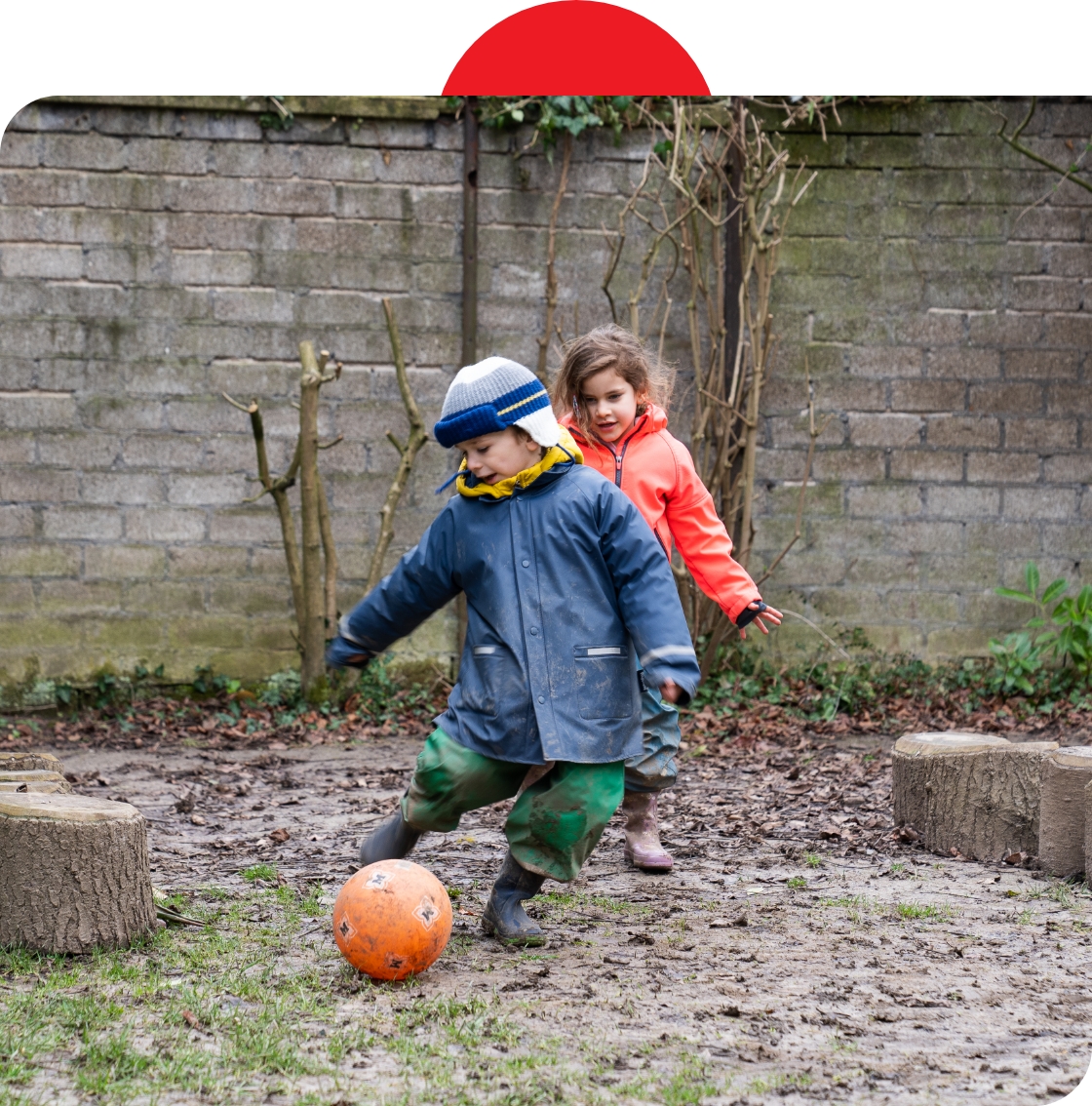
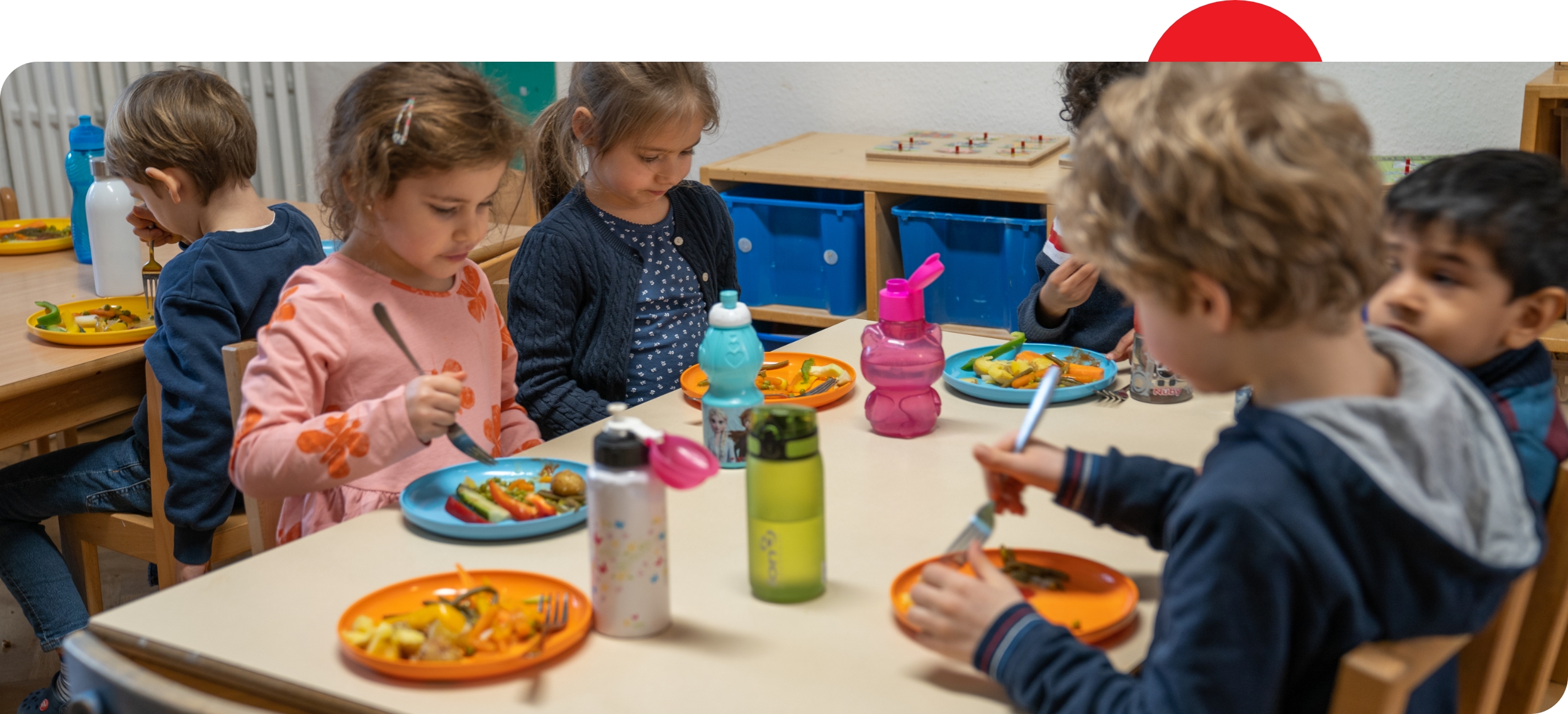
Health
Our Pre-School proactively promotes healthy upbringing and sustainability.
A conscious and healthy diet and the sensitive handling of food have a high priority. This also includes exercise, stress management, hygiene behavior and emotional health.
This includes a balanced lunch together with lots of fruit, hand washing and general hygiene education, free play and romping in our large garden, our “Forest Day” with long walks in the forest and our numerous excursions to local farms.
Hygiene and health promoting rituals in our Pre-School:
- Hygiene measures before eating. How do we wash our hands properlyl?
- Wearing clothes that are appropriate for the weather conditions
- Sneezing rituals: Coughing and sneezing into the crook of the arm.
- Avert head when sneezing and blowing nose. Do not sneeze or cough into someone`s face!
- Practicing independence when going to the toilet
A child acquires health and hygiene awareness through role models and through his or her own experiences and actions. Therefore, these important values in life cannot simply stop at the kindergarten door. Hygiene and health education happens countless times in our facility, sometimes without us paying special attention to it.
Hygiene and health education is a joint task of kindergarten teachers and parents. This implies that we closely cooperate with our parents in terms of table manners, values of friendliness and politeness as well as hygiene education. We also show the children how to wash their hands properly.
Step 1: Pull up your sleeves, turn on the tap, wet your hands and turn off the tap
Step 2: Put soap in your hands, wash and count to 10, turn on the tap, rinse your hands and use ONE paper towel!
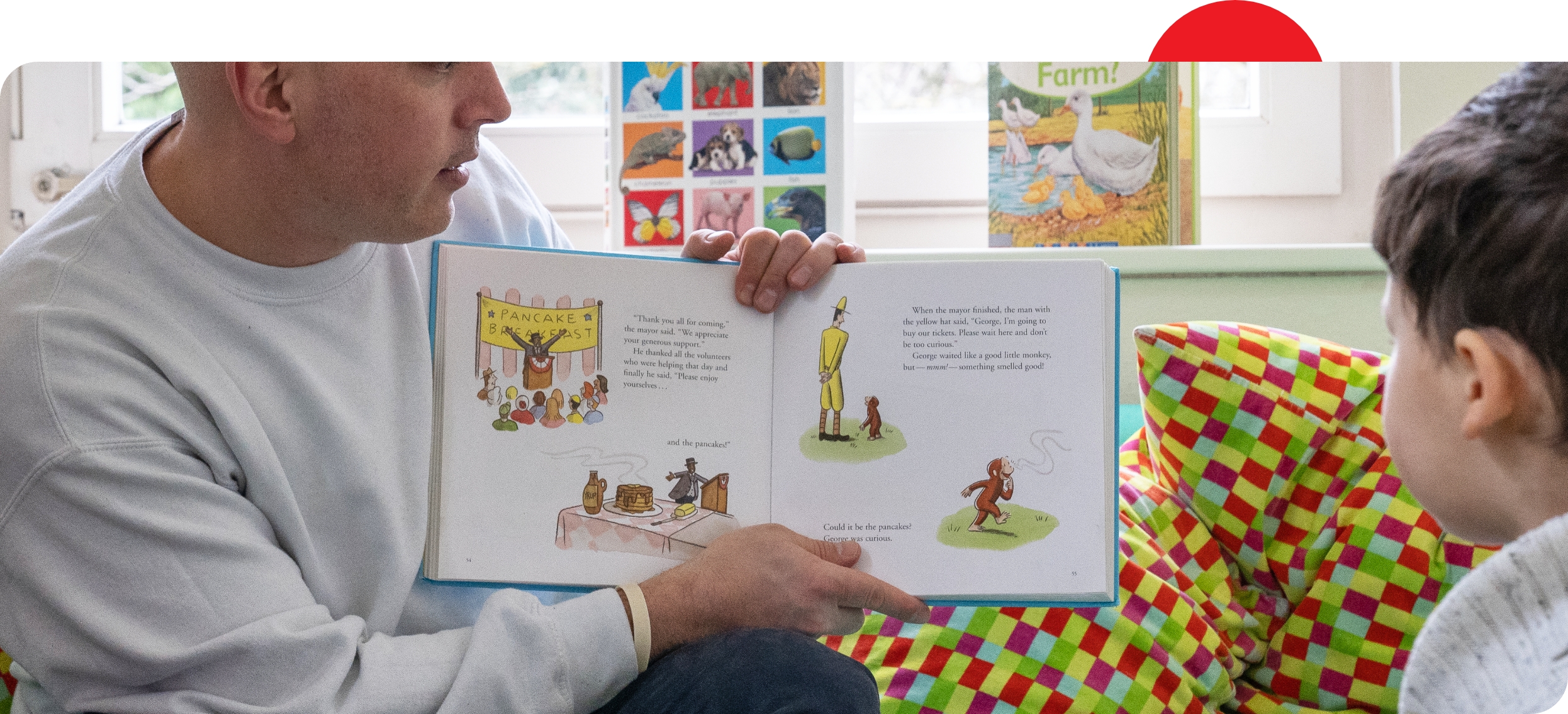
Learning English
Our language acquisition concept is based on the principle of immersion, where English is used as a means of everyday communication. Our native-speaking teachers guarantee a natural and authentic acquisition of the English language.
Learning English through immersion means "immersing yourself in the language".
This methodology is empirically proven to be the most effective and successful methodology for early childhood language acquisition.
Our child-centered elementary pedagogy understands education and upbringing as a process through which the children form their own picture of the world.
We offer the children reliable relationships, transparent social rules, participation in their own learning, listening to their needs and appreciative communication as well as exchange with other children as a foundation for their cognitive and emotional development.